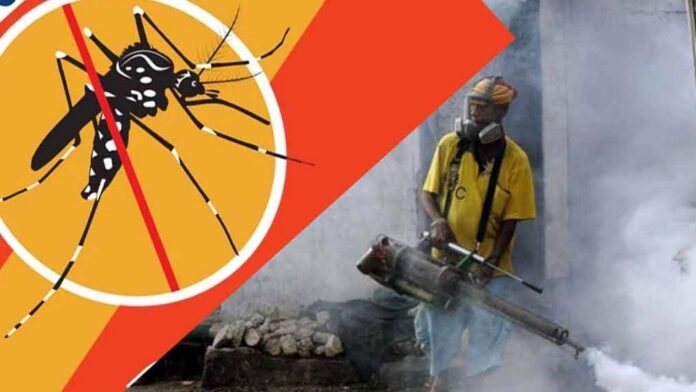May 14, Colombo (LNW): Public health officials in Sri Lanka are intensifying efforts to combat a concerning rise in mosquito-borne diseases, with nearly 20,000 cases of dengue reported across the country so far this year.
The National Dengue Control Unit has identified 38 Medical Officer of Health (MOH) areas as critical hotspots for dengue transmission, prompting the launch of an urgent vector control campaign.
Dr Sudath Samaraweera, Director of the National Dengue Control Unit, confirmed that over 2,200 new dengue cases have been recorded in the first two weeks of May alone, with the Western Province accounting for a staggering 47 per cent of infections.
The situation is further exacerbated by a parallel rise in chikungunya cases, another viral illness spread by the Aedes mosquito species.
Health authorities are particularly concerned about the dual burden of these two diseases, both of which present with fever, joint pain, and fatigue, and can place immense pressure on public health services if left unchecked.
The same mosquito species responsible for dengue is also a carrier of chikungunya, making the containment of breeding grounds a public health priority.
In response, a nationwide eradication initiative will take place from May 19 to 24, focusing on the elimination of mosquito breeding sites in 15 high-risk districts.
This concerted operation will involve local government bodies, health workers, and community leaders, aiming to disrupt the mosquito life cycle and stem the spread of disease before the onset of the southwest monsoon season, which typically exacerbates transmission rates.
Public cooperation is being emphasised as a key factor in the success of the initiative. Residents are being urged to routinely inspect their premises for stagnant water—particularly in items like discarded containers, blocked gutters, uncovered tanks, and neglected garden areas.
Simple household practices, such as clearing leaf debris and cleaning water storage units, can significantly reduce the risk of mosquito breeding.
Dr Samaraweera has also appealed to the public to allow health inspection teams access to both private and commercial premises during the scheduled eradication week.
These teams will be inspecting neighbourhoods for potential mosquito breeding sites and educating households about prevention measures.
The upcoming weeks are expected to be critical in determining whether this spike in cases can be brought under control. Health experts warn that without decisive action, the situation could escalate into a larger public health crisis, especially in urban and semi-urban areas where population density allows for rapid viral spread.

